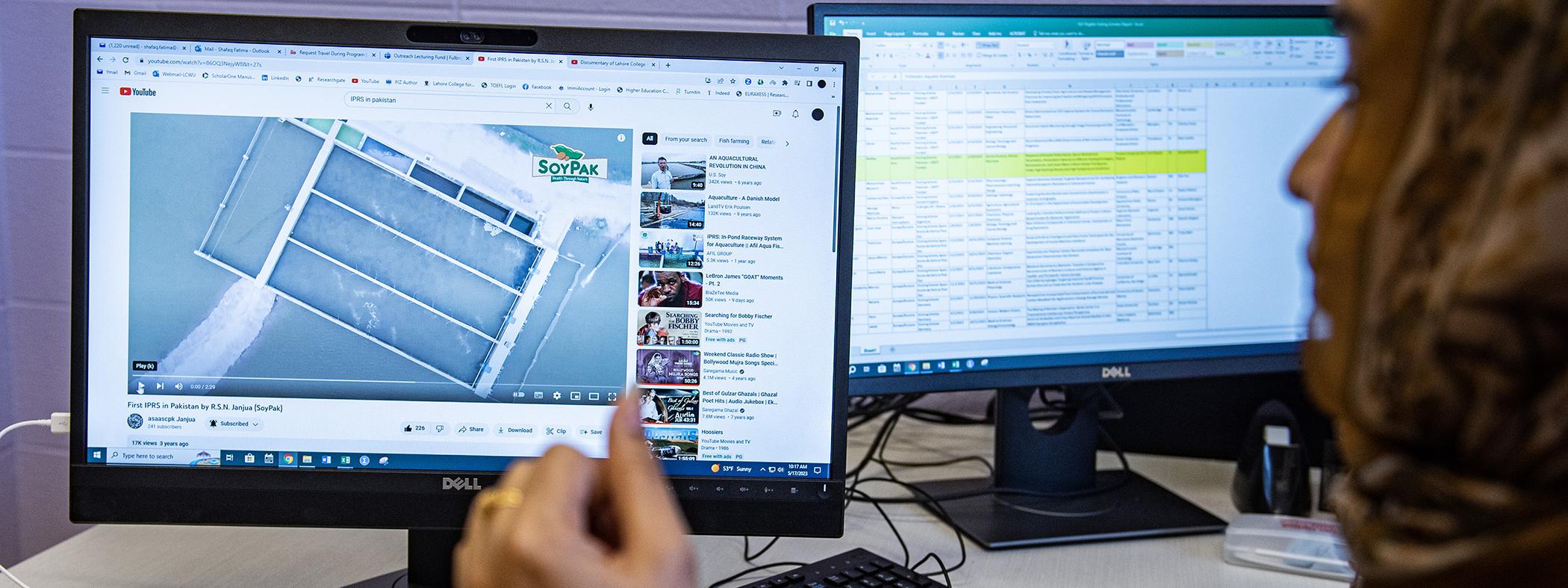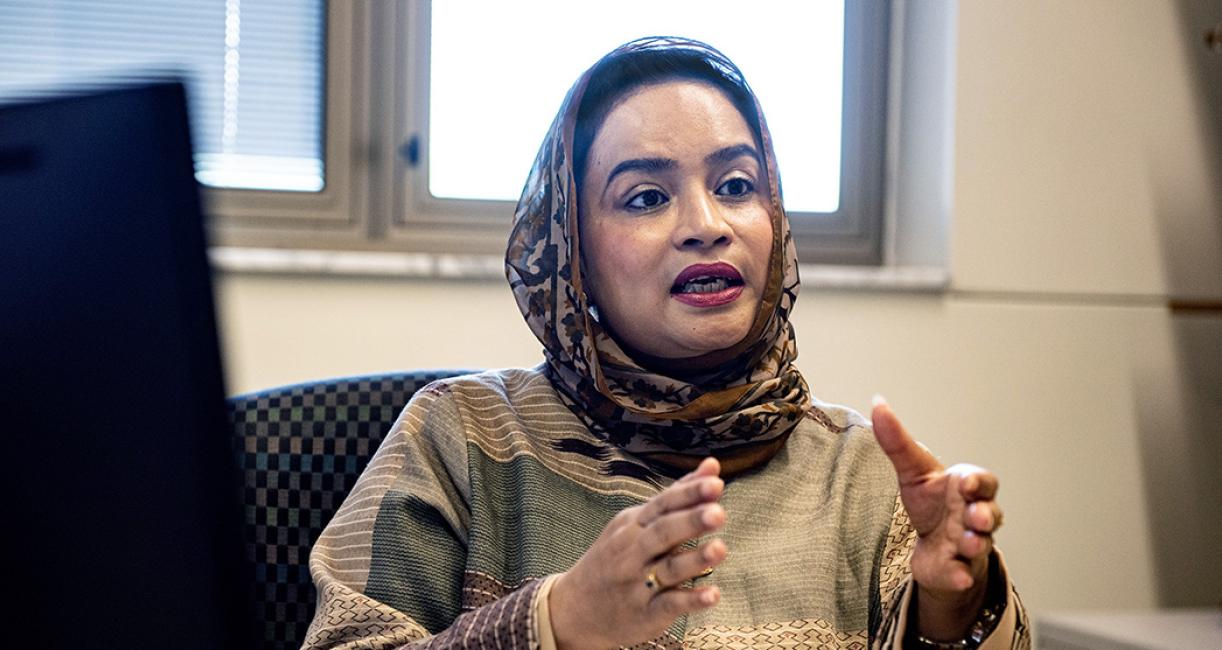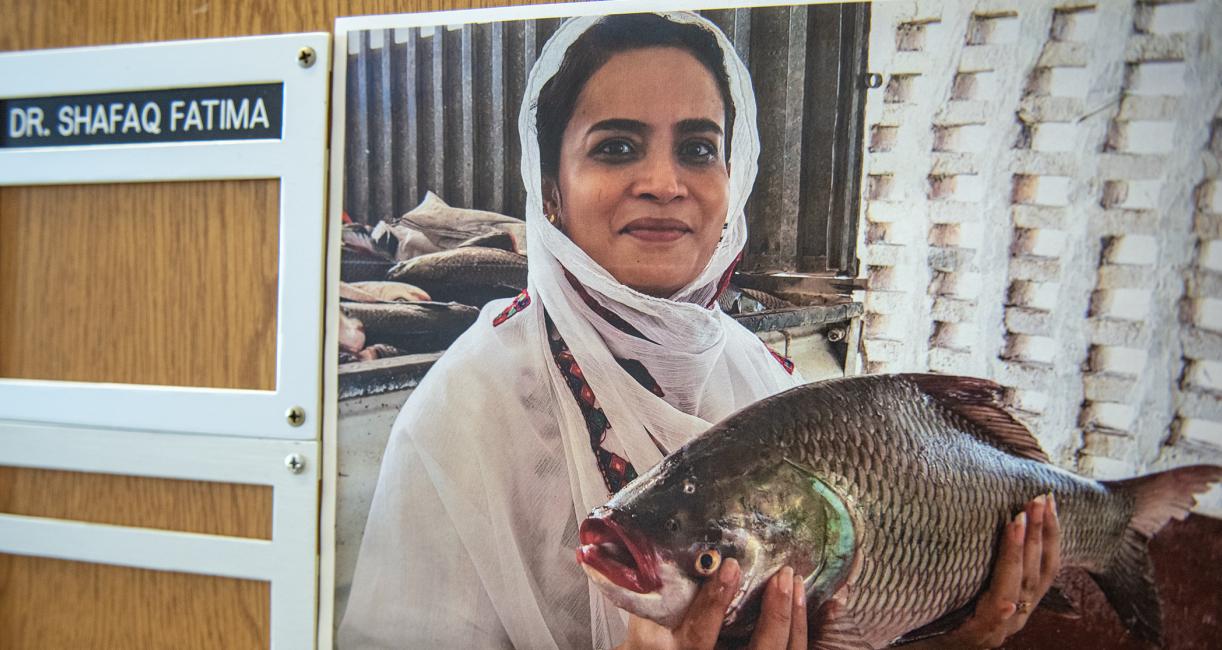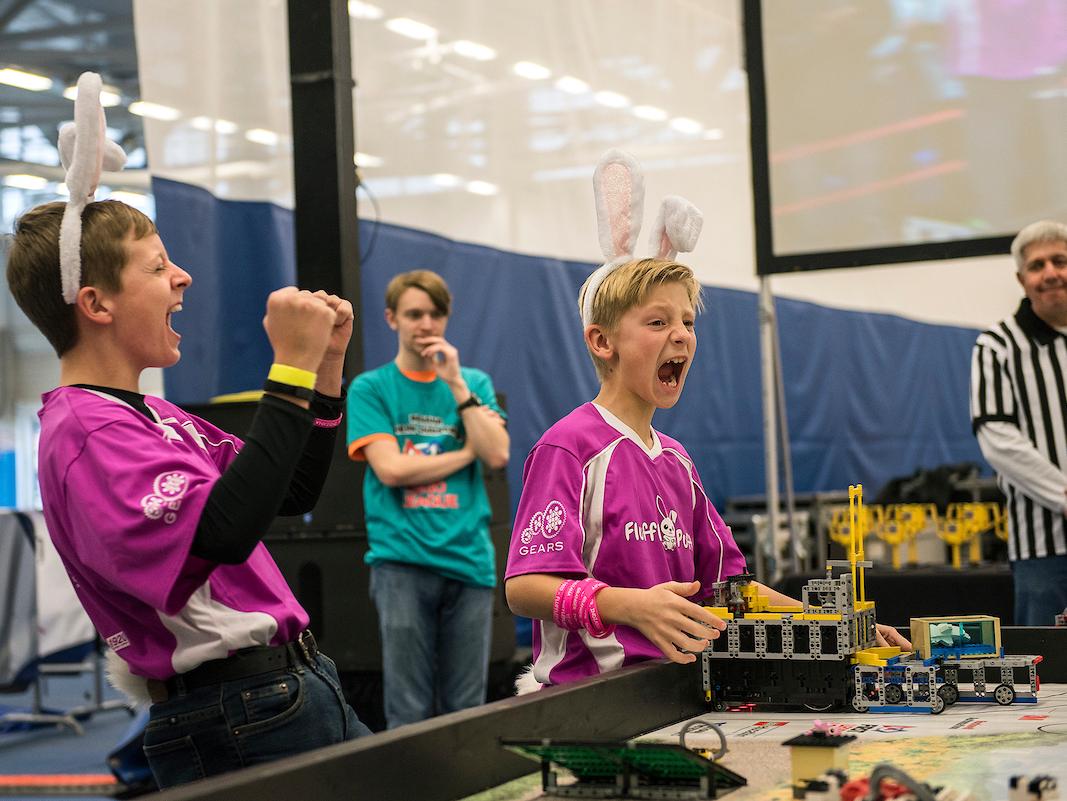


Visiting Fulbright Scholar takes opportunity to learn about US, teach about Pakistan
By Blake Sebring
June 6, 2023
Shafaq Fatima projects competency, confidence, and the stature of someone who knows who she is and what she is accomplishing. However, that doesn’t reveal how she gained her attitude and capabilities on a journey which has allowed her to build to this level of maturity.
Fatima’s expertise in her field, validated in part through her achievement of a Fulbright grant, is visiting Purdue University Fort Wayne until March as an associate professor of zoology from Pakistan’s Lahore College for Women University.
In addition to sharing with students her knowledge of the scientific study of animals, there’s also a bigger message Fatima wants to convey to the people of America.
“There are several misconceptions about Pakistan,” Fatima said, “that the women are suppressed; that we are a patriarchal society, which they don’t have many opportunities to educate themselves or excel professionally; that they can’t do much.
“Not everyone can travel to Pakistan and see what is happening. I am a representative and an ambassador for my country. Being a woman and being here means that we do have several opportunities for women to establish ourselves as a professional.”
But becoming a professor and teacher was not enough for Fatima. After being inspired by her mentor to choose aquaculture and the study of fish farming, she tackled a greater challenge by entering Pakistan’s male-dominated aquaculture profession. In 2019, she introduced “In-pond Raceway System” technology in collaboration with aquaculture industry and Pakistan’s Higher Education Commission.
It’s essentially a different society going from the urban city where the university is located to working at a rural fishery where she was almost always the only woman. Fatima had to earn respect from the industry, which respects field experience more than degrees.
“There’s an assumption that women don’t know much, especially in something like this that requires field work,” Fatima said. “To win their respect and trust, you have to show them that you are strong and dedicated and you can contribute something substantial and innovative toward their economic growth. You can’t just say, ‘I am a Ph.D.’ It doesn’t carry much worth in the field. But once they know your professional worth, they support you. It could not be possible without support of my family and supporters of women entrepreneurship in the aquaculture industry of Pakistan.”
She already understood the difference between the knowledge of having book-taught and experience-taught lessons.
“Even the farmhands in the field, they may never have gone to school, but they know what is happening in the pond, with the water quality, with the fish, and what will happen in the market,” Fatima said. “Most of them have no degree at all, but they are acknowledged specialists. It shows the worth of field work.”
The fish-growing season lasts 10 months in Pakistan, Fatima said, culturing different breeds of carp, tilapia, and pangasius. The work of feeding and maintaining water quality is always physically taxing, but she formed bonds with the workers through her effort and dedication to the long hours required. She also proved her worth by helping expand the economic value of their product and developing better feed and production systems.
“Now I know what is actually happening, what the challenges are,” Fatima said. “Instead of following the traditional way of research, you know exactly what the industry needs, and work on finding the solutions of their problems. It is very challenging, but I am very much a transformed person after doing these projects.”
The experience also helps inspire her students, as she can speak with hard-won authority on aquaculture.
Shrimp, Fatima said, is the big future species in aquaculture, something Pakistan hopes to develop quickly. She’s working on what improves growth, and disease and stress resistance.
She also has another goal.
“If I can meet people, fishery professionals, and visit farms and hatcheries, I can learn more about fish farming and modern aquaculture technologies in the USA,” Fatima said. “This knowledge will be very helpful for the industry in Pakistan, as I am a farmer myself and know the value of development.
“I also can explain about Pakistan myself, which will have much more impact because I am from that place. It’s always good when you have people from different countries. I hope that PFW will support me in achieving this goal.”




